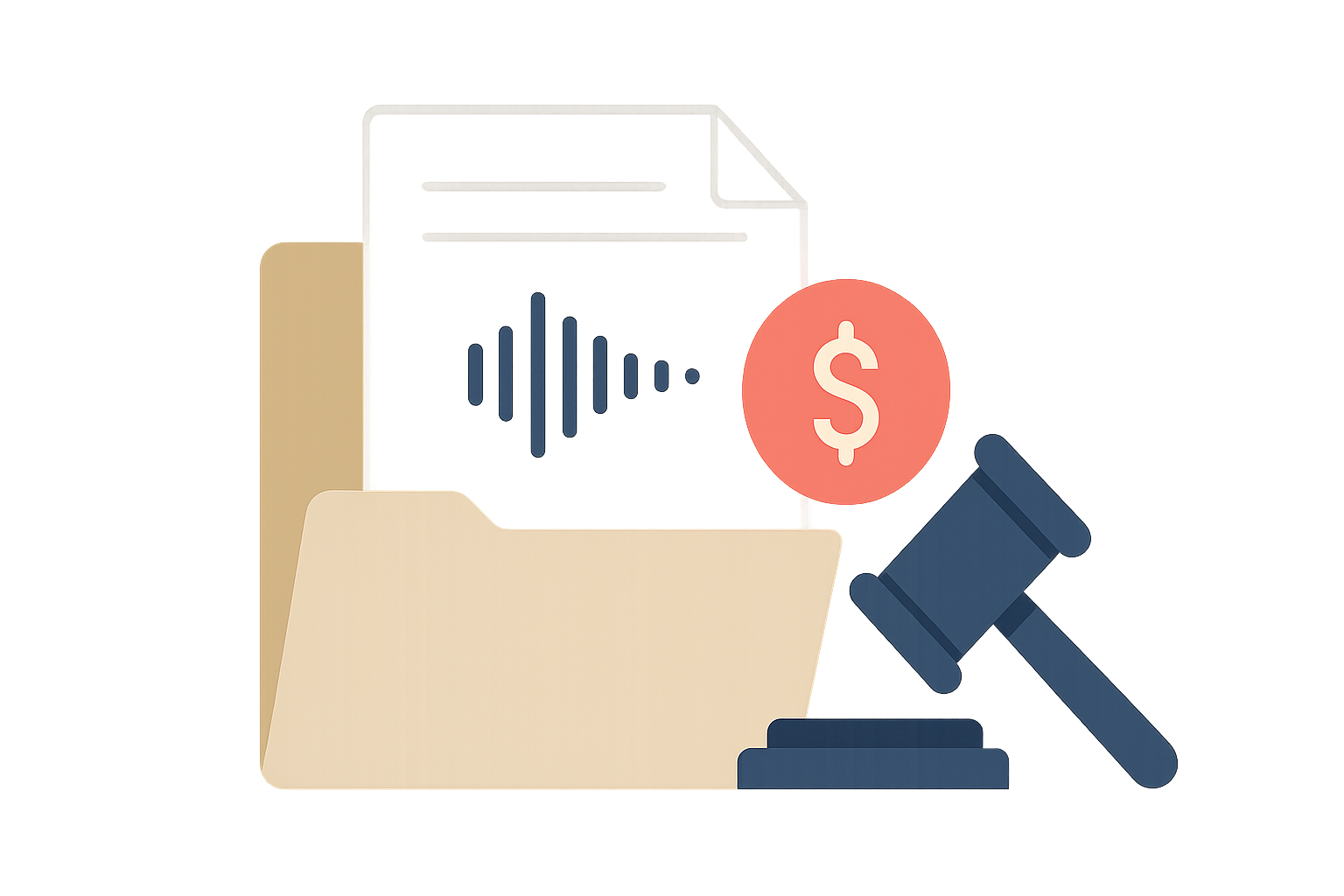Archived Content Monetization: Legal Guide

Many media companies, publishers, and creators are looking for ways to monetize their existing digital archives. From podcasts and recordings to older multimedia assets, past content can represent a valuable revenue stream when repurposed effectively. But questions often arise: can you republish archived content legally, who owns the rights, and what risks exist around copyright and licensing? Without clarity, revenue opportunities can quickly transform into compliance headaches.
This guide provides a structured overview of the key legal considerations in monetizing archived content: copyright, licensing rules, and fair use. It also shows how Audiorista empowers publishers and creators to distribute, republish, and monetize legacy content compliantly—without unnecessary complexity or exposure to legal risks.
Legal issues in archived content
Archived media comes with copyright obligations that apply regardless of age. Copyright ownership determines who has the legal right to reproduce, distribute, and monetize an asset. Even if content has been unused for years, copyright laws still apply until those rights expire or are transferred.
Before monetizing archived content, you must confirm ownership. For publishers, this means reviewing original contracts, verifying creator agreements, or checking rights databases. Without proof of ownership, a third party may challenge republishing and monetization.
Archived content can be monetized through advertising, subscription offerings, direct sales, or syndication partnerships. However, each of these models requires clear permission to use the content legally. Failure to secure permissions or misinterpretation of ownership can lead to costly disputes. Legal compliance must be built into every monetization strategy from the start.
Common mistakes in republishing include assuming old contracts apply to new distribution platforms, ignoring territorial restrictions embedded in earlier licensing agreements, and using third-party materials without clearance.
Licensing rules define how archived media can be reused. Publishers often encounter situations where re-licensing is necessary. For example, an archived podcast episode containing licensed music may require updated rights to distribute on modern streaming platforms. Similarly, a video with embedded third-party footage may have limitations that apply only to specific formats or territories, making re-licensing essential.
Fair use is a doctrine that allows limited use of copyrighted material without explicit permission under certain conditions, such as commentary, news reporting, or education. While some archived content strategies may appear to fall under fair use, relying on this protection comes with significant limitations. For monetization, fair use becomes particularly risky since revenue generation can undermine claims of non-commercial or transformative use.
Tools for safe republishing
Modern publishing requires both legal compliance and scalable tools to manage archived content effectively. Audiorista provides direct solutions for creators and publishers who want to future-proof their archives. By enabling secure republishing workflows, built-in monetization features, and audience engagement tools, Audiorista helps ensure that archived content is legally and profitably distributed.
- feature-rich publishing tools to manage your content licensing effectively and streamline audio monetization options
- custom branded apps that let you securely republish archived media, launch monetized content apps, and fully own your distribution channels
By combining licensing awareness with the right publishing infrastructure, publishers can unlock the hidden value of their archives while staying compliant with copyright and licensing frameworks.
Final thoughts on monetizing archives
Unlocking income from archived content is possible—but only if you respect copyright, licensing rules, and fair use. This article has outlined the essential legal considerations and shown how Audiorista empowers creators to safely republish and monetize old digital assets without legal risks.
Start republishing your archived content the right way—build your own secure, monetized platform with Audiorista today.


